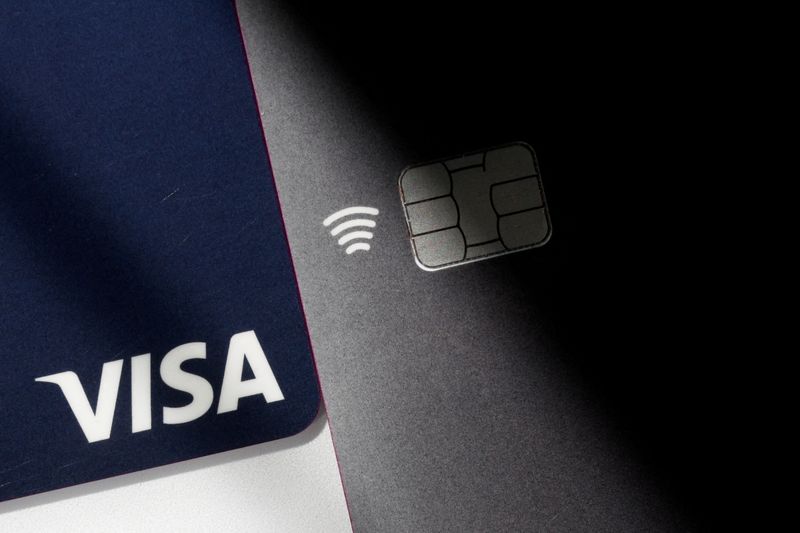By Manya Saini
(Reuters) -Card giant Visa (NYSE:V) sailed past estimates for fourth-quarter profit on Tuesday as consumers on a post-pandemic travel rebound shrugged off worries of a looming economic slowdown and cost-of-living crisis.
Visa's CFO Chris Suh said U.S. inbound travel recovery accelerated in the quarter, while travel into Asia also continued to improve.
"At a macro level, we are assuming no recession in our outlook," Suh said on a call with analysts.
While economic forecasts for the upcoming year have turned increasingly gloomy in a higher-for-longer interest rate environment, consumer spending has held remarkably steady, helping sustain payment volumes.
Visa's payment volumes rose 9% in the quarter, while cross-border volumes excluding transactions within Europe, a gauge of travel demand, surged 18%.
"Consumer spending should remain resilient especially through the holiday season because unemployment levels remain low and wages continue to grow," said Michael Ashley Schulman, partner and CIO at Running Point Capital Advisors.
Last week, American Express (NYSE:AXP) also posted quarterly profit that beat expectations. Rival Mastercard (NYSE:MA)'s results, due later this week, will close the reporting season for the sector.
Meanwhile, recent economic data shows inflation in the U.S. has begun to moderate, a trend that typically hurts card companies, which charge a percentage on the dollar value of transactions.
"That (moderating inflation) has been a headwind for most of this year, but with inflation having fallen well off peaks, it should be less of a headwind for Visa next year," Logan Purk, technology analyst at Edward Jones, told Reuters.
Visa posted adjusted profit of $2.33 per share in the three months ended Sept. 30, topping expectations of $2.24 per share, according to LSEG data.

It increased its quarterly dividend by 16% to $0.52 per share and authorized a new $25 billion multi-year share repurchase program.
Shares of the world's largest payments processor pared some initial gains and were last flat in volatile aftermarket trading.